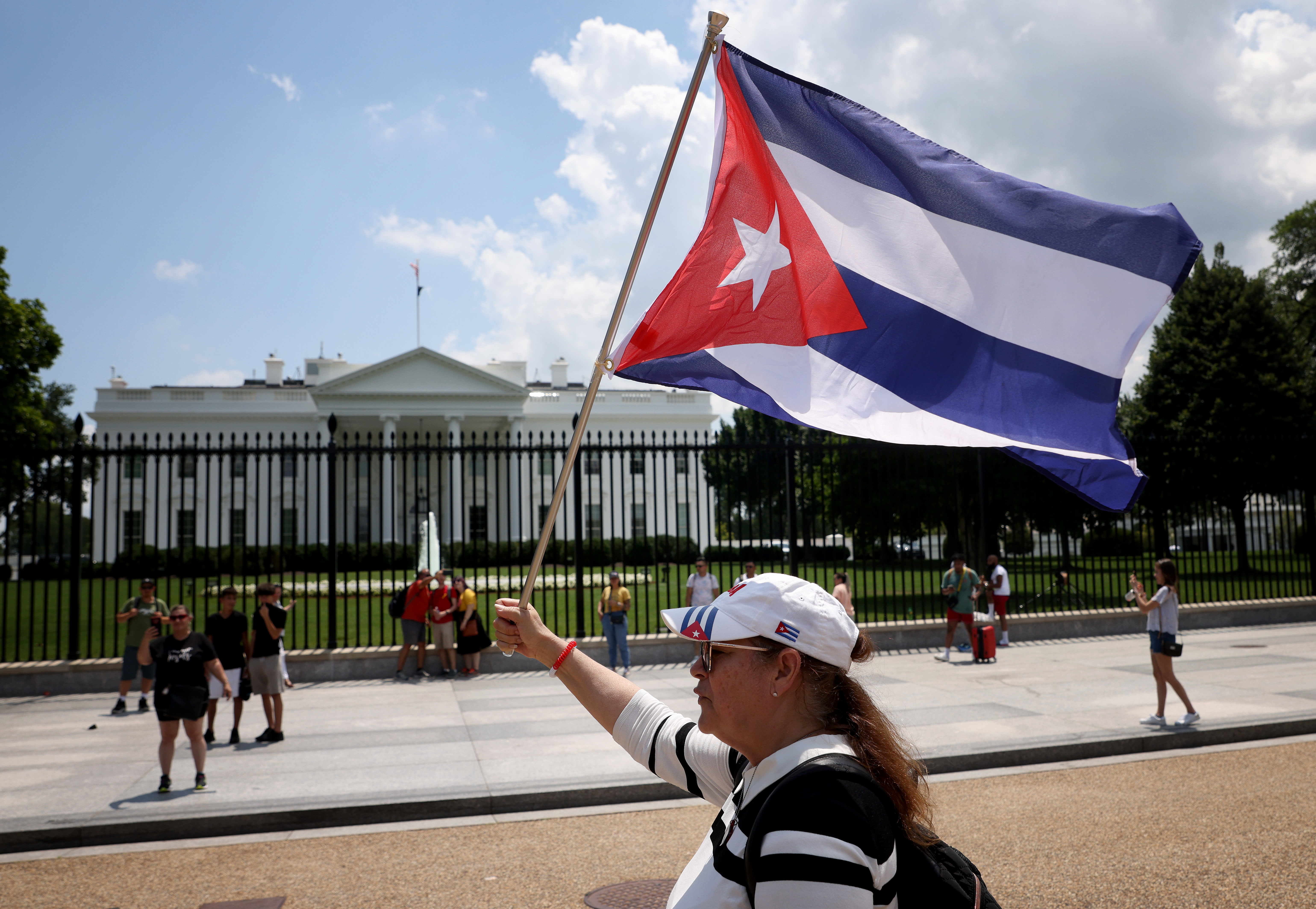
Cuban Americans demonstrate outside the White House in support of demonstrations taking place in Cuba on July 12, 2021 in Washington, DC.
Win McNamee | Getty Images
WASHINGTON – The State Department on Tuesday said the U.S. is considering an array of options to help the Cuban people, after thousands of protestors filled the streets this week over frustrations with a crippled economy hit by food and power shortages.
“We are always considering options available to us that would allow us to support the Cuban people, to support their humanitarian needs which are indeed profound, and they are profound because of not anything the United States has done, but from the actions and inactions, mismanagement, corruption of the Cuban regime,” State Department spokesman Ned Price told reporters.
Price said that in 2020 the U.S. exported more than $175 million worth of goods to Cuba, including food and medicine. He also condemned the Cuban government’s forceful attempts to silence peaceful protesters and called on Havana to “release anyone detained for peaceful protest.”
Sunday’s rare protests, the largest the communist country has seen since the 1990s, come as the government struggles to contain the coronavirus pandemic, pushing the island’s fragile health-care system to the brink.
People take part in a demonstration to support the government of the Cuban President Miguel Diaz-Canel in Havana, on July 11, 2021.
Yamil Lage | AFP | Getty Images
President Díaz-Canel Bermudez said in a national address on Sunday that his regime was “prepared to do anything” to quell the protests, according to a report from The Washington Post. “We will be battling in the streets,” he said, adding that the United States was in part to blame for the widespread discontent in Cuba.
On Monday, he appeared alongside members of his government and blamed U.S. trade sanctions for hampering Cuba’s growth.
Reacting to the Cuban president’s comments, Secretary of State Antony Blinken told reporters on Monday that the United States was not to blame for the laundry list of issues plaguing Havana.
Blinken said that Cubans were “tired of the mismanagement of the Cuban economy, tired of the lack of an adequate food and of course, an adequate response to the Covid-19 pandemic.”
“That is what we are hearing and seeing in Cuba, and that is a reflection of the Cuban people, not of the United States or any other outside actor,” Blinken said.
President Joe Biden told reporters at the White House on Monday that the U.S. stands “firmly with the people of Cuba as they assert their universal rights.”
“The Cuban people are demanding their freedom from an authoritarian regime. I don’t think we’ve seen anything like these protests in a long long time if, quite frankly, ever,” Biden said.




